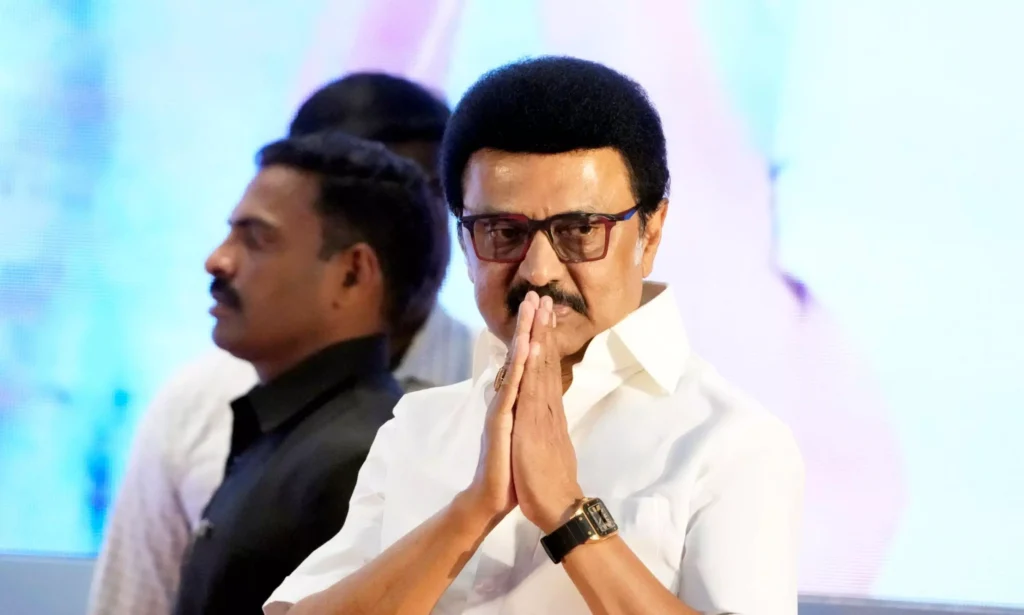Tamil Nadu Chief Minister M.K. Stalin has called for an all-party meeting on March 5 in Chennai to discuss the impending delimitation of Lok Sabha constituencies, which he warns could significantly reduce the state’s representation in Parliament. Stalin expressed concern that Tamil Nadu, due to its successful population control measures, faces the possibility of losing eight parliamentary seats, decreasing its count from 39 to 31.
Emerging from a state cabinet meeting, Stalin emphasized the gravity of the situation, stating that the proposed delimitation exercise, scheduled for 2026, poses a threat to the political voice of Tamil Nadu. He highlighted that states like Tamil Nadu, which have effectively implemented family planning programs, are at risk of diminished representation, while states with higher population growth may gain additional seats.
The Chief Minister underscored the broader implications of such a reduction, noting that it would not only stifle Tamil Nadu’s voice in national affairs but also adversely affect the state’s rights and interests. He called upon all 40 registered political parties in the state to unite and address this pressing issue collectively, transcending party lines to safeguard Tamil Nadu’s rightful representation.
Stalin’s concerns are rooted in the potential shift of political power towards states with larger populations, which could lead to an imbalance in resource allocation and policy decisions at the national level. This development has sparked a broader debate on the fairness of linking parliamentary representation directly to population size, especially when states have made conscious efforts to control population growth.
In addition to the delimitation issue, Stalin criticized the Union government’s three-language policy outlined in the National Education Policy , perceiving it as an imposition of Hindi and a threat to Tamil language and culture. He asserted that Tamil Nadu is prepared to engage in another language war to protect its linguistic heritage, drawing parallels to the state’s historical resistance against Hindi imposition.
The Chief Minister’s remarks have elicited varied responses from political leaders. K. Annamalai, the state president of the Bharatiya Janata Party , dismissed Stalin’s concerns as “imaginary fears,” accusing him of diverting attention from other pressing issues. Annamalai contended that the people of Tamil Nadu have rejected the DMK’s stance on the NEP and the three-language policy, suggesting that Stalin is attempting to shift the narrative to the delimitation issue without substantial basis.
The delimitation exercise, mandated to occur after every census, aims to redraw parliamentary constituencies based on the latest population data. However, the potential consequences of this process have raised alarms, particularly in southern states like Tamil Nadu, which have successfully curbed population growth. Analysts predict that states such as Uttar Pradesh and Bihar could gain additional seats due to their higher population growth rates, while Tamil Nadu and Kerala might witness a reduction or marginal increase in their parliamentary representation.
This anticipated shift has prompted discussions about the need for a more equitable approach to delimitation, one that considers factors beyond mere population figures. Proponents of this view argue that states that have implemented effective population control measures should not be penalized with reduced representation, as it could discourage other states from pursuing similar policies.
The upcoming all-party meeting on March 5 is expected to serve as a platform for Tamil Nadu’s political leaders to deliberate on these concerns and formulate a unified strategy to address the potential challenges posed by the delimitation exercise. Stalin’s call for unity reflects the urgency of the matter, emphasizing that the state’s collective voice is essential to safeguard its interests in the national arena.
As the delimitation process approaches, the discourse surrounding it underscores the complexities of balancing population dynamics with fair political representation. The outcome of Tamil Nadu’s deliberations may set a precedent for other states facing similar dilemmas, highlighting the need for a nuanced approach to electoral reforms that aligns with the principles of federalism and equitable governance.




 Supreme Court Initiates Overhaul of Senior Advocate Designation Process
Supreme Court Initiates Overhaul of Senior Advocate Designation Process 